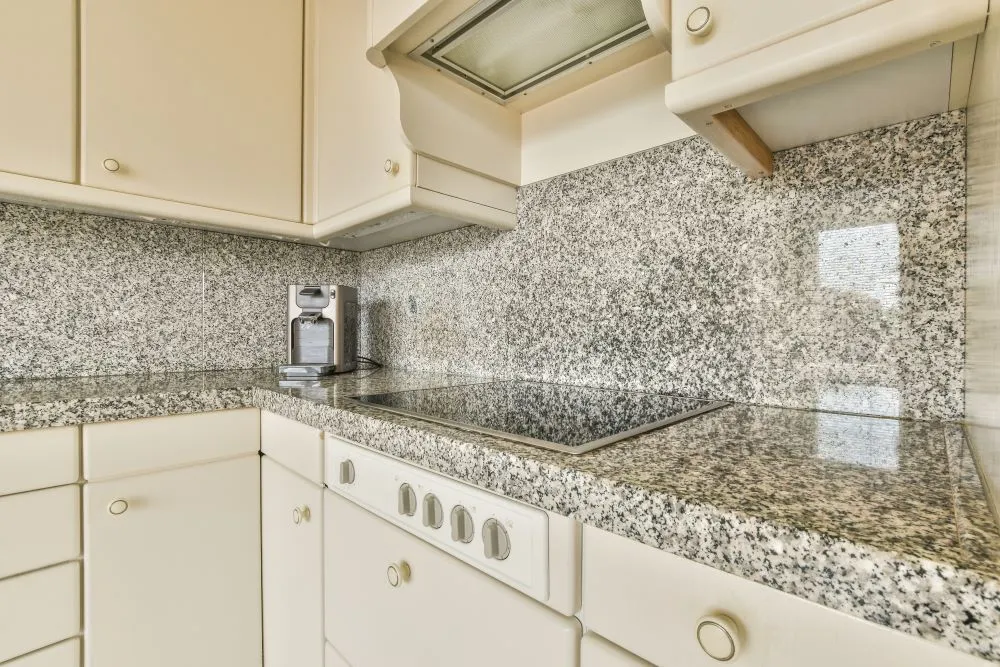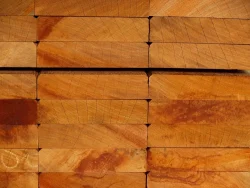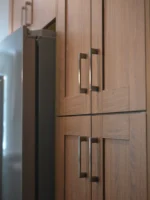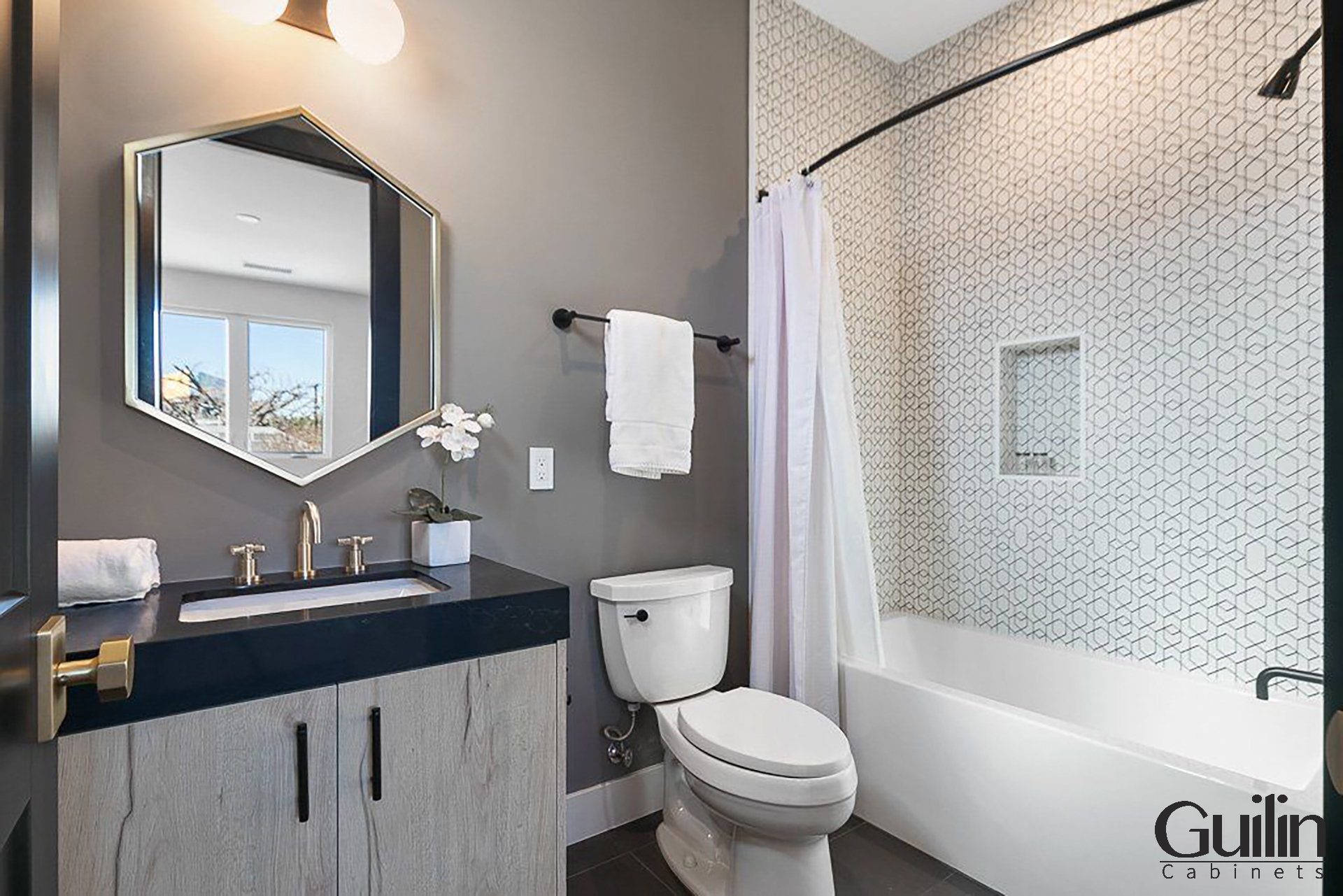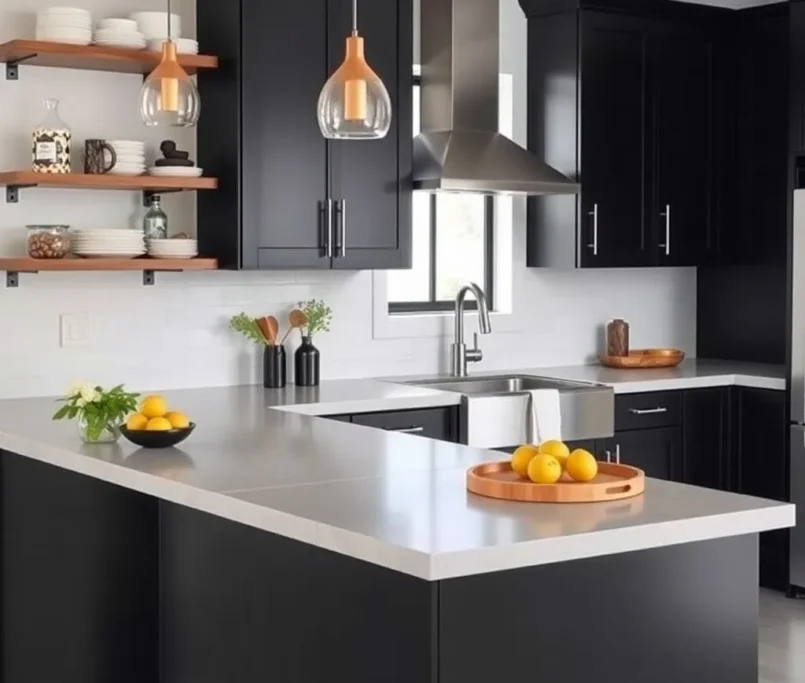The allure of a sparkling clean granite countertop is undeniable. However, the quest for cleanliness can sometimes lead to unintended consequences. One common solution that should never touch your granite countertops is vinegar. Despite its versatility as a household cleaner, vinegar poses a serious threat to the integrity of your natural stone surfaces. Whether your granite countertops are snowy white or sleek black, using vinegar to clean them can have disastrous results.
Granite Composition and Properties
Your granite countertop is composed of a natural stone known for its durability and beauty. One of the main components of granite is silica, which gives it its strength and resistance to heat and scratches. Additionally, granite contains minerals such as quartz, feldspar, and mica, which give it its unique colors and patterns. The density of granite also makes it resistant to stains and bacteria growth.
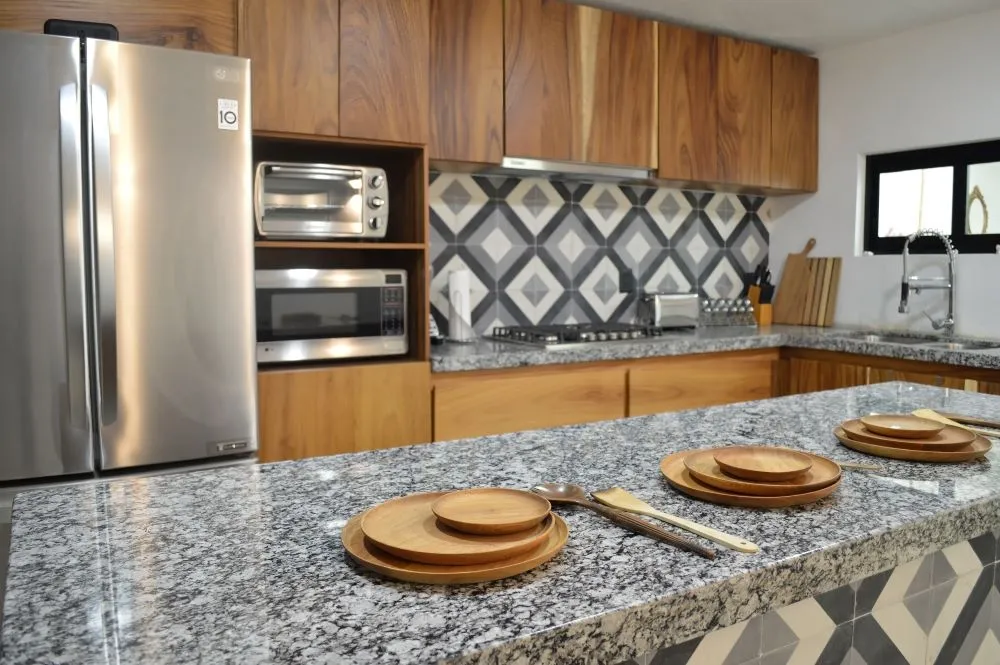
Types of Granite Countertops
Granite countertops come in various types, each with its own characteristics. White granite typically has a lighter color palette with flecks of other minerals, giving it a sophisticated look. On the other hand, black granite is known for its sleek and elegant appearance, often featuring subtle patterns and veins.
- White granite: Lighter color palette with flecks of minerals
- Black granite: Sleek and elegant appearance with subtle patterns
- Absolute Black Granite: Known for its deep black color, this granite provides a sleek and modern appearance to any space.
- Bianco Antico Granite: This granite features a white or creamy background with specks of black, brown, and gray minerals, giving it a sophisticated and elegant look.
- Giallo Ornamental Granite: Characterized by its creamy beige background with flecks of brown, black, and gray, this granite adds warmth and richness to any kitchen or bathroom.
- Uba Tuba Granite: With a deep green color and flecks of gold, brown, and black, Uba Tuba granite offers a unique and luxurious appearance.
- Kashmir White Granite: Featuring a creamy white background with subtle gray veining and specks of burgundy, Kashmir White Granite creates a timeless and elegant look.
- …
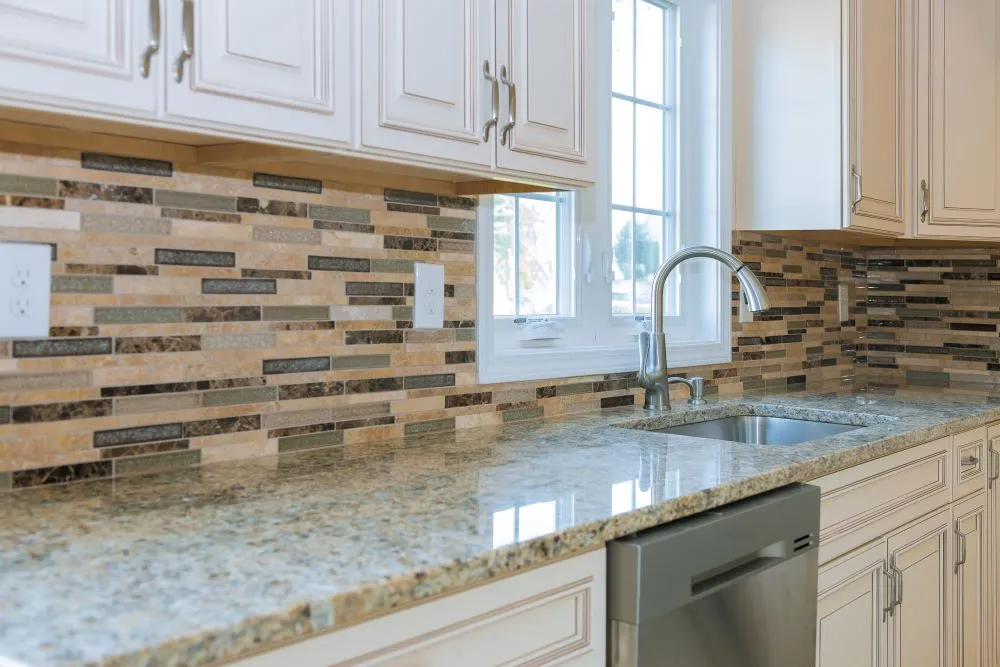
For instance, knowing the specific type of granite in your Guilin Cabinets can help you choose the right cleaning products and avoid damaging substances like vinegar. It’s imperative to maintain the beauty and longevity of your granite countertops by following proper cleaning guidelines and using suitable cleaners.
About Vinegar
Acetic Acid and Its Effects
Little do people know, vinegar is composed primarily of acetic acid, a strong acidic compound that can have detrimental effects on certain surfaces. With respect to granite countertops, the acids in vinegar can cause etching, which is the dulling or fading of the stone’s surface. Even when diluted, vinegar can leave behind residue that slowly eats away at the protective sealant on granite countertops, leading to irreversible damage over time.
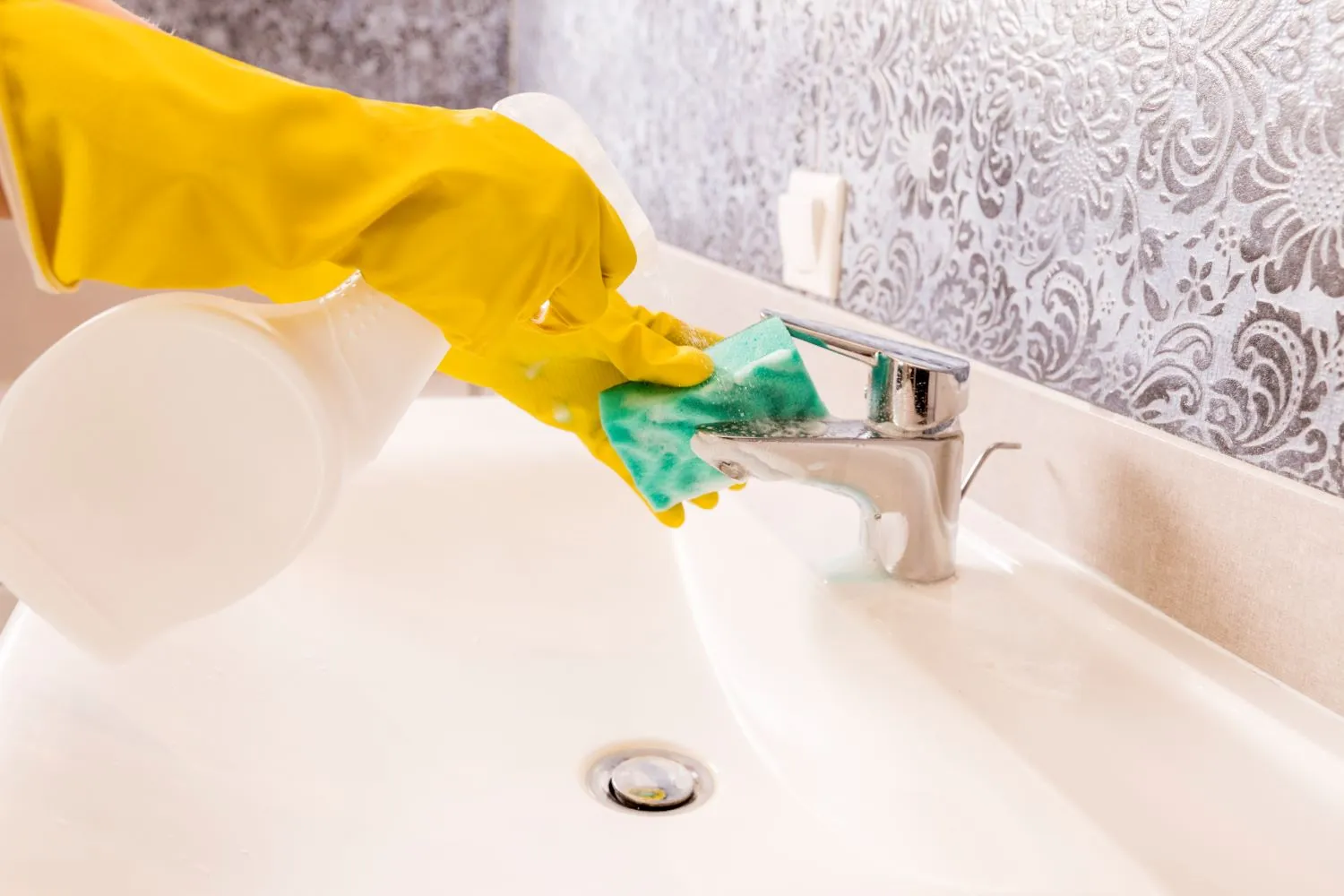
One of the key reasons why vinegar is not recommended for cleaning granite is that the stone is sensitive to acidic substances. Granite is a natural stone that is formed under intense heat and pressure, making it prone to etching and discoloration when exposed to acids like vinegar. Therefore, it is crucial to avoid using vinegar or any other acidic cleaners on granite countertops to preserve their beauty and longevity.
Why Vinegar Is a Popular Household Cleaner
Science has shown that vinegar’s acidic properties make it an effective cleaner for various household surfaces, such as glass, countertops, and appliances. While vinegar can effortlessly remove dirt and grime from many surfaces, it is important to note that vinegar should never be used on granite countertops. The popularity of vinegar as a cleaner stems from its affordability, eco-friendliness, and versatility, but caution must be exercised when using it on delicate surfaces like granite.
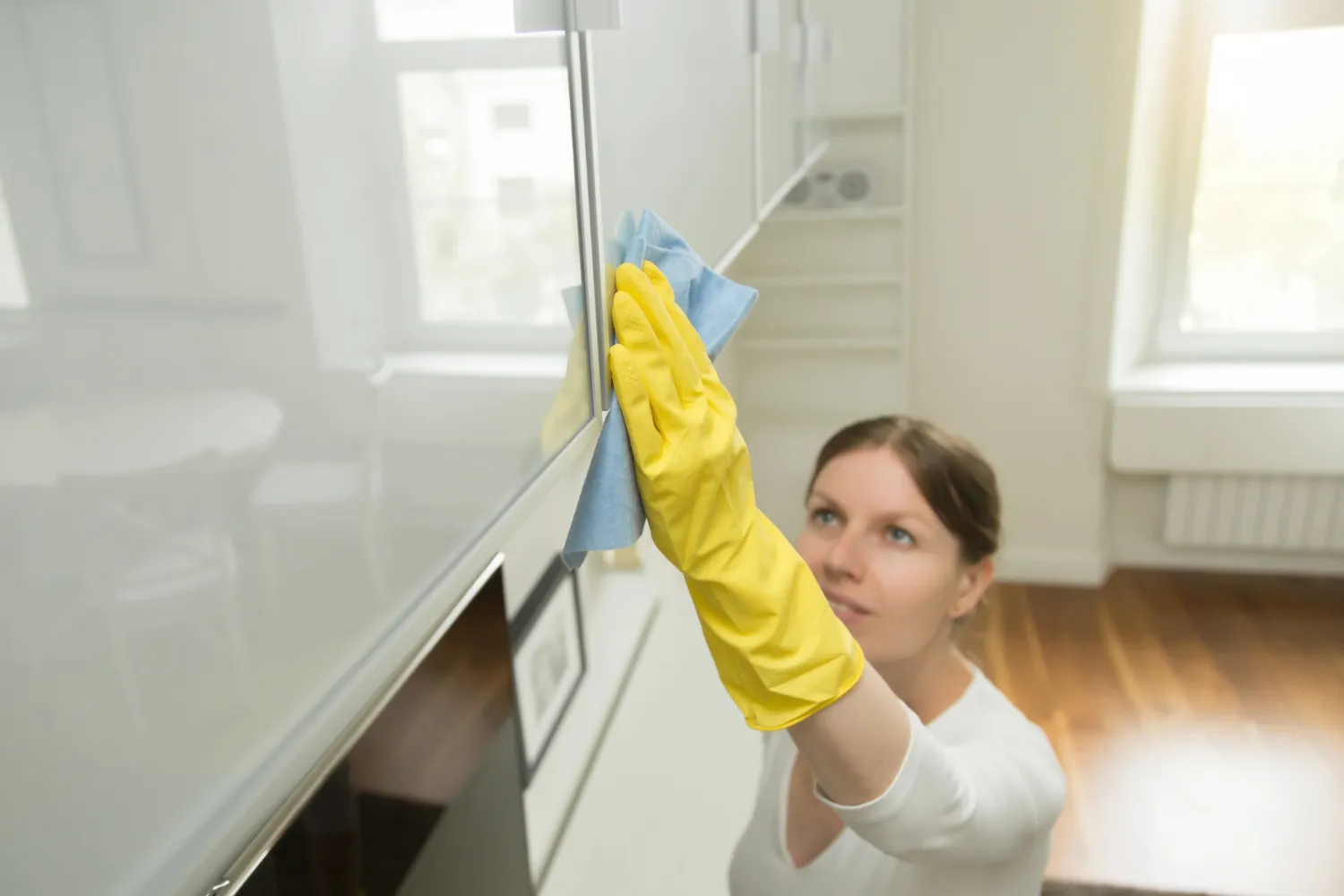
Another reason why vinegar is a go-to cleaner for many households is its ability to eliminate bacteria and odors effectively. The acidic nature of vinegar makes it a powerful disinfectant, making it ideal for cleaning kitchen counters, floors, and bathroom surfaces. However, when it comes to granite, the risks of using vinegar far outweigh any potential benefits, as it can lead to irreversible damage that may require costly repairs or replacements.
Chemical Interactions with Granite
Once again, it is crucial to emphasize the importance of never using vinegar to clean your granite countertops. Understanding the chemical interactions between acidic substances like vinegar and granite is imperative to preserving the beauty and longevity of your countertops.
How Acids React with Granite
Interactions: Vinegar, a common household cleaner, is acidic in nature. When vinegar comes into contact with granite countertops, which are primarily composed of natural stone, a chemical reaction occurs. The acids in vinegar can react with the minerals in granite, causing damage to the surface of the countertop over time.
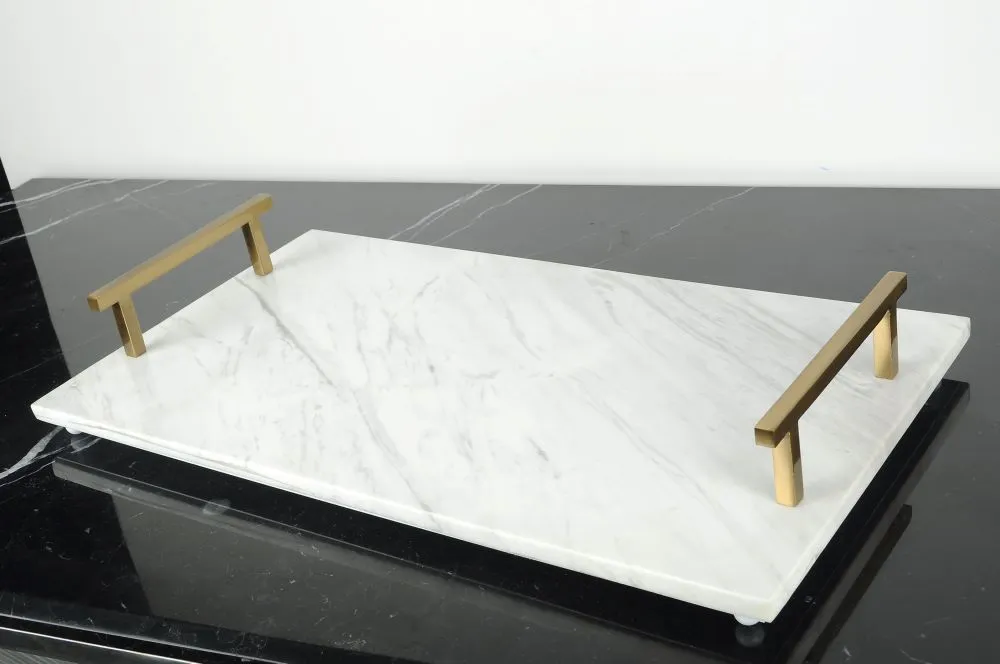
The Etching Process Explained
With etching: When vinegar is used to clean granite countertops, it can lead to a process known as etching. Etching manifests as small marks or dull spots on the surface of the granite, indicating that the acids in the vinegar have begun to erode the stone. If left untreated, these etchings can worsen over time, compromising the integrity of the countertop.

Etching caused by vinegar is irreversible and can result in the need for costly countertop replacement. It is imperative to avoid using acidic cleaners on granite and opt for specialized granite cleaners to maintain the beauty and durability of your countertops.
Symptoms of Granite Etching
On your granite countertop, you may notice small rings or watermarks forming. These are clear signs that the acidity of the vinegar has started to etch the surface of the granite. Additionally, the shine of your countertops may start to dull in areas where vinegar has been used, indicating damage to the natural stone. For long-term impacts of acidic damage on granite surfaces, the consequences can be severe.
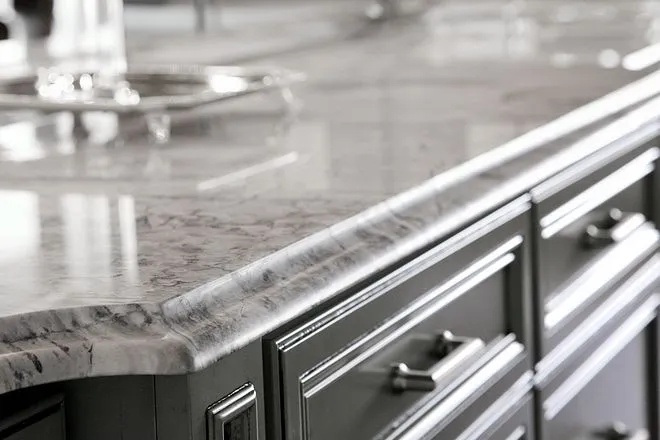
Long-Term Impacts of Acidic Damage on Granite Surfaces
Continued use of vinegar on your granite countertops can lead to permanent damage. Over time, the etching caused by the acids in the vinegar can become more pronounced, affecting the appearance and quality of your countertops. If left unchecked, this damage may require professional restoration or even replacement of the granite.

Identifying and addressing etching on your granite countertops is crucial to maintaining their beauty and longevity. If you suspect that your countertops have been damaged by vinegar or other acidic cleaners, it is important to take immediate action to prevent further harm. By avoiding the use of vinegar and choosing safe, pH-balanced cleaners, you can protect your granite countertops and preserve their natural beauty for years to come.
Alternative Granite Cleaning Solutions
Safe Products for Granite Care
Keep your granite countertops gleaming and in perfect condition by using safe products specifically designed for granite care. These products are formulated to clean your countertops without causing any damage or etching. Look for gentle, pH-neutral cleaners that are free from harsh chemicals.
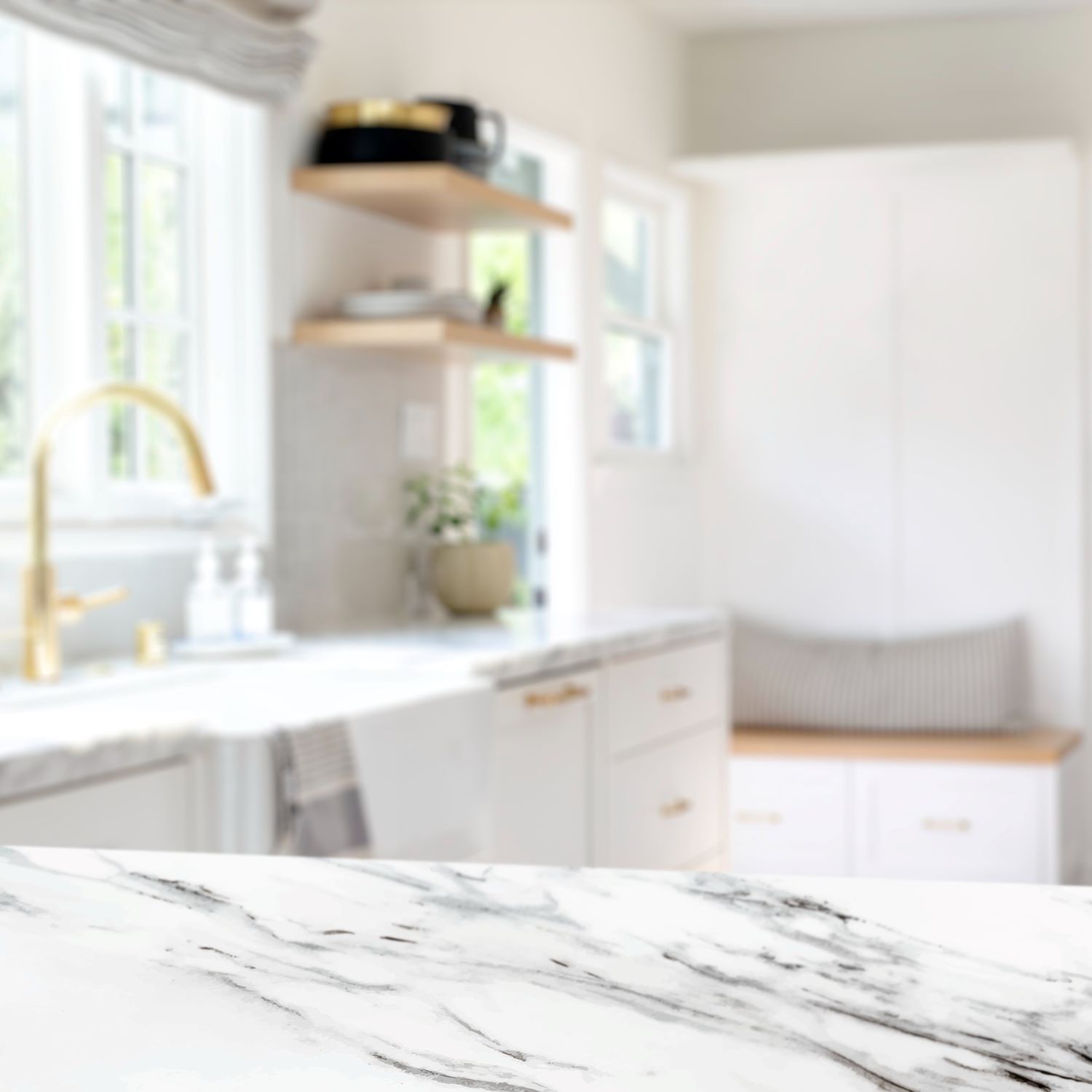
The acids in vinegar can severely harm your granite countertops, causing etching and potential damage that may require countertop replacement. Instead, opt for safer alternatives like granite-specific cleaners that are gentle yet effective at removing dirt and grime without causing any harm to your precious countertops. By investing in the right cleaning products for your granite countertops, you can ensure that they remain in top condition for years to come.
DIY Natural Cleaners for Granite
The acids in vinegar can wreak havoc on your granite countertops, leading to etching and potential damage. However, you can create your own natural cleaners using safe ingredients like water, mild dish soap, and rubbing alcohol. These DIY cleaners are gentle on your granite countertops yet effective at removing stains and dirt.
Understanding the impact of harsh chemicals like vinegar on your granite countertops is crucial for maintaining their beauty and longevity. By opting for natural, DIY cleaners, you can ensure that your countertops stay in pristine condition without putting them at risk of damage.

Final Words
So, in conclusion, it is crucial to understand the potential dangers of using vinegar to clean your granite countertops. While vinegar may be a go-to cleaner for many household tasks, it should never be used on natural stone surfaces such as granite. The acids in vinegar can cause significant damage to your countertops, leading to etching and discoloration over time. This can ultimately result in the need for costly replacement of your granite countertops.
